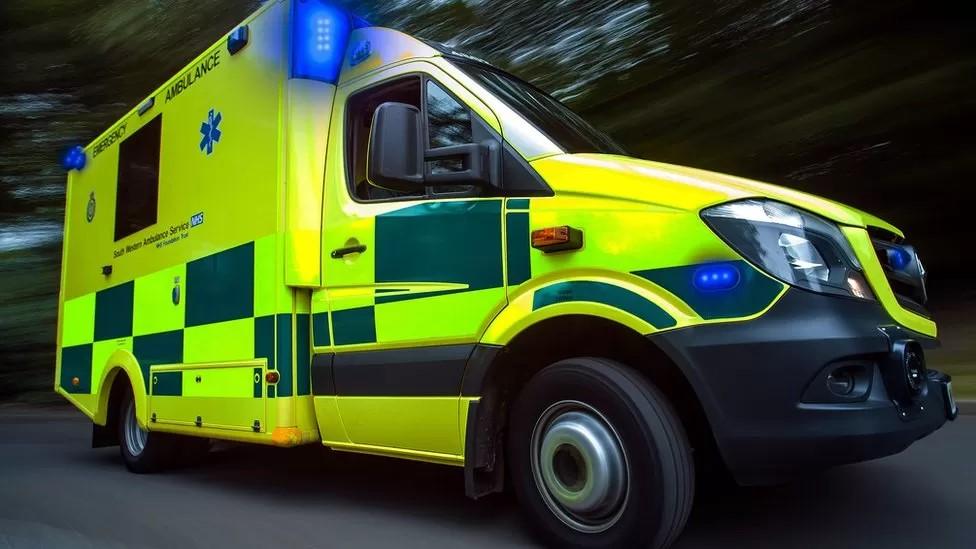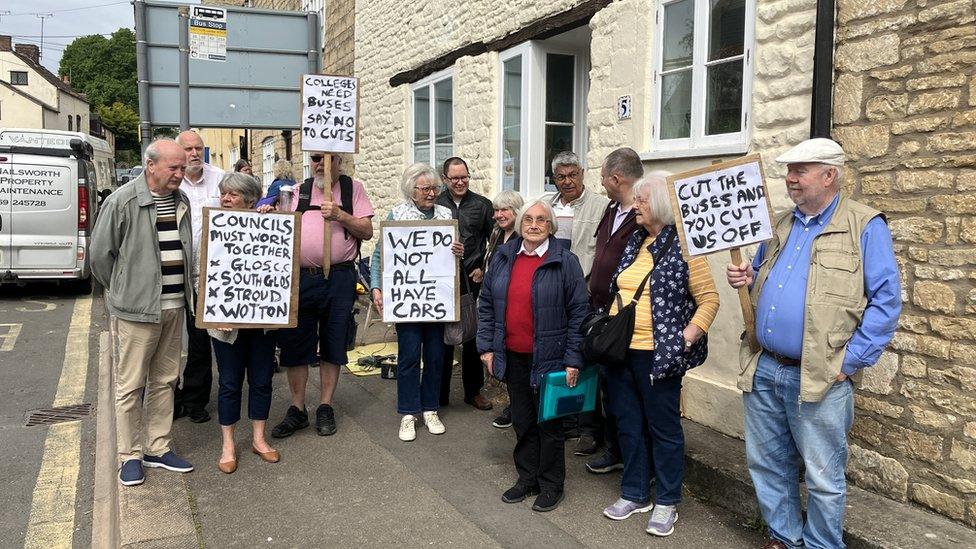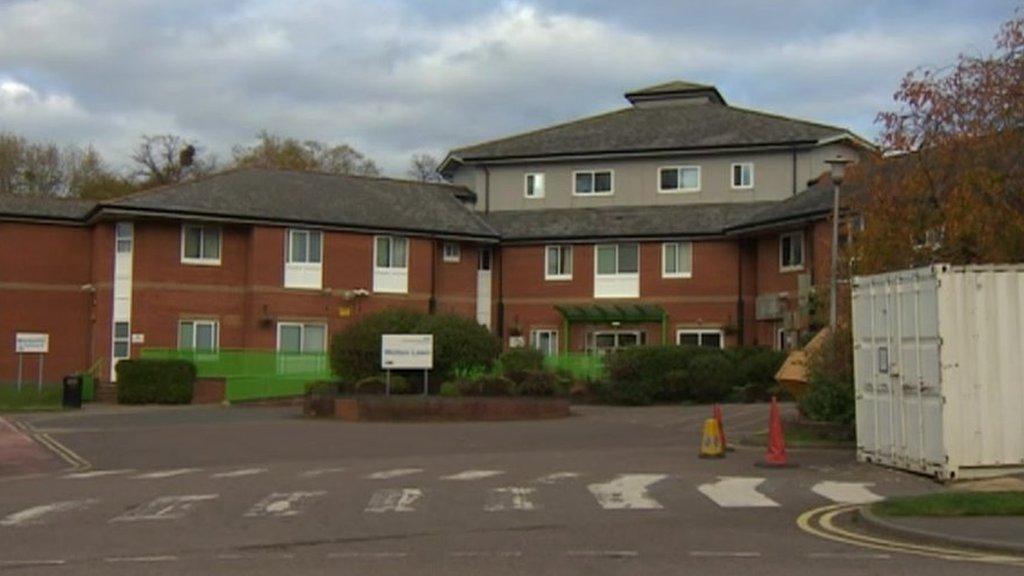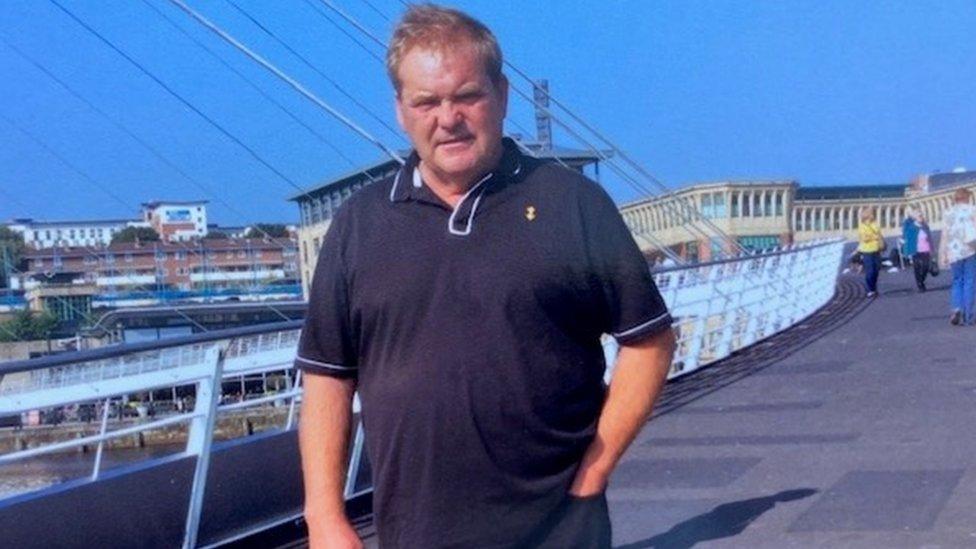Gloucestershire residents' fears over slow ambulance response
- Published

It can take ambulances up to twice the target time to reach patients with a life-threatening condition, figures show
Residents in parts of Gloucestershire fear for their safety because ambulance response times are nearly double what they should be, a councillor says.
The Cotswolds and the Forest of Dean have been recorded as having the slowest response times in the county.
Councillor Paul Hodgkinson said the issue was causing "great concern" for residents in his area.
South Western Ambulance Service said it was working with the NHS and social care to improve services for patients.
Figures show it takes an average of 13 minutes and 22 seconds for an ambulance to respond to a category one call in the Cotswolds, but it should take seven minutes, the Local Democracy Reporting Service (LDRS) said.
These are call-outs classified as life threatening and in need of immediate intervention and possible resuscitation.
'Stubbornly high'
In the Forest of Dean it takes 13 minutes and five seconds for an ambulance to arrive, while it takes 12 minutes 40 seconds in Stroud, with nine minutes 25 seconds in Tewkesbury borough.
In contrast, in Cheltenham and Gloucester average response times are seven minutes 34 seconds and seven minutes and seven seconds respectively.
Speaking at a health overview and scrutiny committee (HOSC) meeting on Tuesday, Mr Hodgkinson said the times in his area were "stubbornly high... and I'm really worried about this. Residents do raise it with me a lot.
"These figures say they won't turn up within the target time. How are we going to get these figures down?"
Gloucestershire County Council chiefs said the figures had slipped back a lot.
They told the meeting they wanted the trust to develop a "clear pathway" to improving the time it takes to get to those in need.
'Handover delays'
A spokesperson for South Western Ambulance Service NHS Foundation Trust said: "Our ambulance clinicians strive every day to deliver their best care for patients.
"[However] our performance has not returned to pre-pandemic levels, partly due to handover delays at emergency departments."
County commander Stephanie Bonser accepted the service had to continue working on reducing its response times.
She told the meeting there "has been an improvement" and numbers of clinicians and vehicles in some of the more rural areas were being increased.
"We are working hard in our recruitment for clinicians. That will also give timely advice in the interim."
She said community first responders in those areas would also help reduce response times.

Follow BBC West on Facebook, external, Twitter, external and Instagram, external. Send your story ideas to: bristol@bbc.co.uk , external
- Published23 May 2023

- Published23 May 2023

- Published4 November 2022
